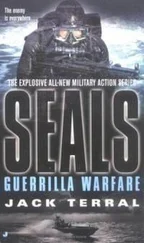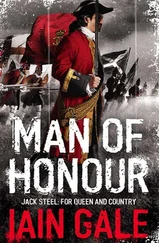Bucher told no one on the Pueblo about being called on the carpet. His sailors had their own sources, however, and found out. They were astonished that he’d stuck his neck out so far for enlisted men. Most officers would never risk such a potentially career-damaging clash with higher-ups. “When he stood up for us like that,” said one of the arrestees, “we figured we had the captain of all captains.” The episode convinced Schumacher of something else: that on some deep psychological level Bucher, who’d grown up as an orphan, viewed his men as the brothers he never had.
The sailors, meanwhile, threw themselves into preparing for the readiness tests.
Navy crews had to pass tests that applied to all ships as well as those designed for their particular type. But again there was a complication with the Pueblo : nothing in the voluminous training books covered drills for this new kind of spy ship. As a result, training officers treated the vessel like the freighter it once was. They wanted the crew to demonstrate proficiency in taking aboard stores and transferring them to other ships while under way.
For the same reason, the sailors received no training in maneuvers with particular relevance to the Pueblo , like coping with Soviet harassment. Bucher approached the admiral in charge of training with his dilemma, but even he had never been informed of the Pueblo ’s actual purpose and offered little help in tailoring special exercises.
Nor were there any tests designed specifically for communication technicians working in the all-important SOD hut, a 20-foot-long, ten-foot-wide metal bread box that sat on the main deck forward of the bridge.
Flooded with cold fluorescent light, the hut was manned 24 hours a day. The CTs sat back-to-back along a narrow aisle, working on floor-to-ceiling racks of gadgets. Most of the men were in their twenties, and much brighter than the average enlistee. Twenty-two-year-old Peter Langenberg, for example, had dropped out of Princeton because he was bored. Like Schumacher, the polite, slightly built Langenberg hailed from St. Louis and had joined the Navy to avoid getting drafted into the Army. Schooled as a Russian translator, he previously was attached to the top secret Kamiseya communication station in Japan, where his job was to monitor Soviet navy radio traffic.
There was a certain amount of tension between the regular sailors and the CTs, sealed inside their special chamber like some secretive priesthood. The whiz kids wore their own arm patch—a quill crossed with a lightning bolt—and refused to let ordinary seamen through their triple-locked door or to discuss anything that went on behind it. That bugged Bucher, who, though cleared to know the lock combinations, preferred to pound on the door with his fist until someone inside opened it.
The officer in charge of the CTs was Lieutenant Stephen R. Harris, a Harvard graduate and fluent Russian linguist. Harris had been given responsibility for the SOD hut despite his relatively youthful age of 29. With his beaklike nose, incipient double chin, and self-effacing manner, the lieutenant seemed more like a shy academic than a naval officer. The only child of two Boston-area schoolteachers, he loved the romantic concertos of Rachmaninoff and belonged to a club devoted to preserving electric streetcars. He seemed to write a letter every night to his new wife, a lovely blond secretary named Esther. A devout Presbyterian and born-again Christian, Harris had met her through her brother, a fellow member of the Officers’ Christian Union.
Bucher instinctively liked Steve Harris, even though the CT commander was unlike any Navy officer he’d ever met.
The crewmen passed their readiness exams and, on the misty morning of November 6, 1967, the spy ship cast off for Hawaii, its loudspeakers streaming “The Lonely Bull.”
Going back to sea thrilled Bucher. He was enjoying his two young ensigns, especially Schumacher, who, with his natural competence and irreverence, was proving to be an excellent shipmate. Despite its mechanical problems, the Pueblo handled well at sea, although it had a small ship’s tendency to roll and buck. But good weather prevailed, and Bucher relished all the sensations of an ocean passage: the satisfying whump of the bow plowing into gray rollers, the reassuring throb of Lacy’s two diesel main engines, the mouthwatering smell of pork chops frying in the galley.
Not everyone found the trip as pleasurable.
Some CTs got so seasick they wondered whether they’d live to see the sunrise. Even veterans remarked how roughly the ship sailed, shuddering from bow to transom as it bashed into wave after wave. In the forward berthing compartment, enlisted men tried to get some sleep on bunks stacked three and four high amid the fusty odor of never-quite-clean bodies and clothes. About two feet of headroom separated each bunk. Gulping Dramamine but unable to keep his food down, Langenberg wedged himself into his rack and just tried to endure. “I was seasick the whole time,” he recalled. “To get horizontal was wonderful. You just kind of lie there and moan and wish you were dead.”
The crew also had to deal with the dysfunctional steering engine, which was now dying an average of two times per four-hour watch. Most Navy ships had hydraulic steering; the Pueblo ’s was electromechanical. An entry in the ship’s deck log for November 12 demonstrated the persistence of the problem:
0825 [8:25 a.m.]: Lost electrical steering, all engines stop. 0826: Regained electrical steering, all ahead full. 0829: Lost electrical steering. 0830: All stop. 0833: Shifted to manual steering. 0834: All ahead standard, shifted to electrical steering. 0839: All ahead full. 0909: Lost electrical steering, all stop. 0910: Shifted to manual steering. 0910: Regained electrical steering. 0911: All ahead standard. 0913: All ahead full. 0914: Lost electrical steering, all stop.
In spite of its fitful steering, the ship reached Pearl Harbor eight days after leaving San Diego. Bucher tied up at the submarine base; old sub buddies, he figured, were probably lurking at the local officers’ club. He spent several hours making sure the Pueblo and its intractable steering engine received priority at the repair yard. Later he paid a visit to the headquarters of the commander in chief of the Pacific Fleet—CINCPACFLT, in Navy acronym-ese.
Bucher still hadn’t been told the target of the Pueblo ’s first mission, so he paid a call on an old friend, Lieutenant Commander Erv Easton, now serving on the CINCPACFLT intelligence staff. Bucher was headed for North Korea, not the USSR, said Easton, and the voyage was rated low-risk. The Pueblo ’s sister ferret, the USS Banner , had transited the North Korean coast a couple of times without incident, and Easton promised to give the captain copies of its mission reports. Bucher, he said, should consider his maiden trip a shakedown cruise, a chance to make sure his surveillance gear worked and give his crew a taste of what to expect on more serious outings in the future.
Bucher knew little about North Korea other than that it’d started the Korean War 17 years earlier and possessed only a bathtub navy of patrol boats, sub chasers, and a handful of aging Soviet-built subs. The idea of such a fourth-rate country attacking a commissioned ship of the mighty United States Navy, he believed, was absurdly far-fetched. Yet he wanted to know what the Navy planned to do if the impossible somehow happened. Easton didn’t know, so he passed Bucher on to Captain George Cassell, CINCPACFLT’s assistant chief of staff for operations. Bucher asked Cassell how the Navy would react if the North Koreans went beyond Soviet-style harassment and started shooting. What if they tried to capture his ship on the high seas?
Читать дальше












